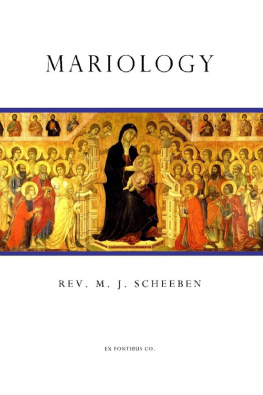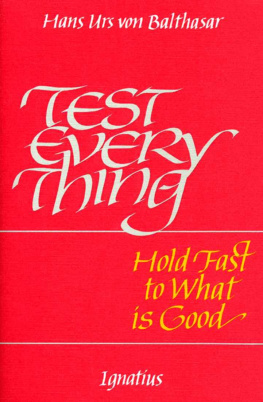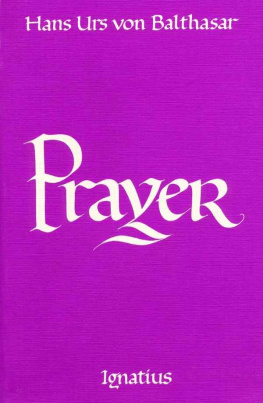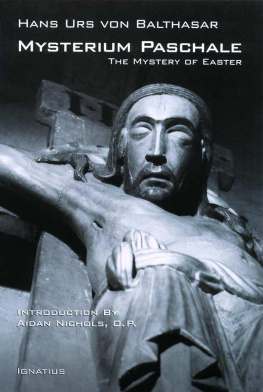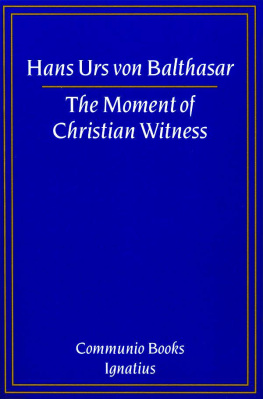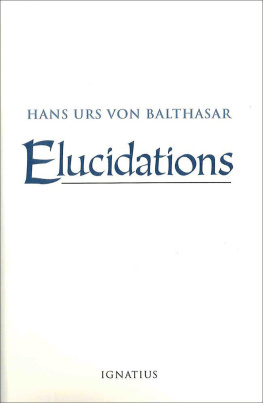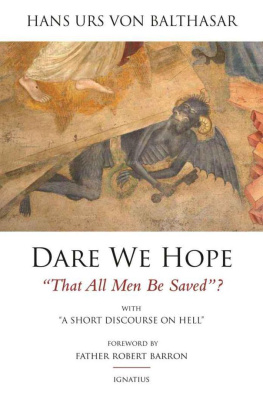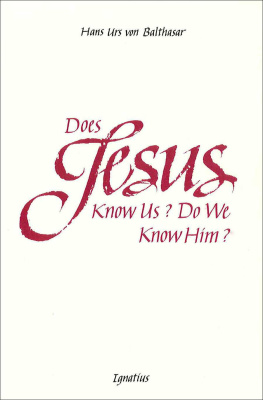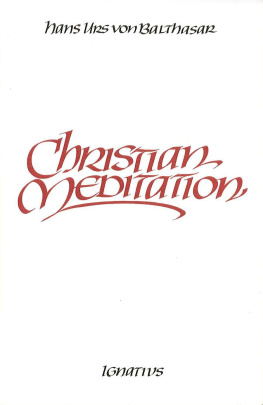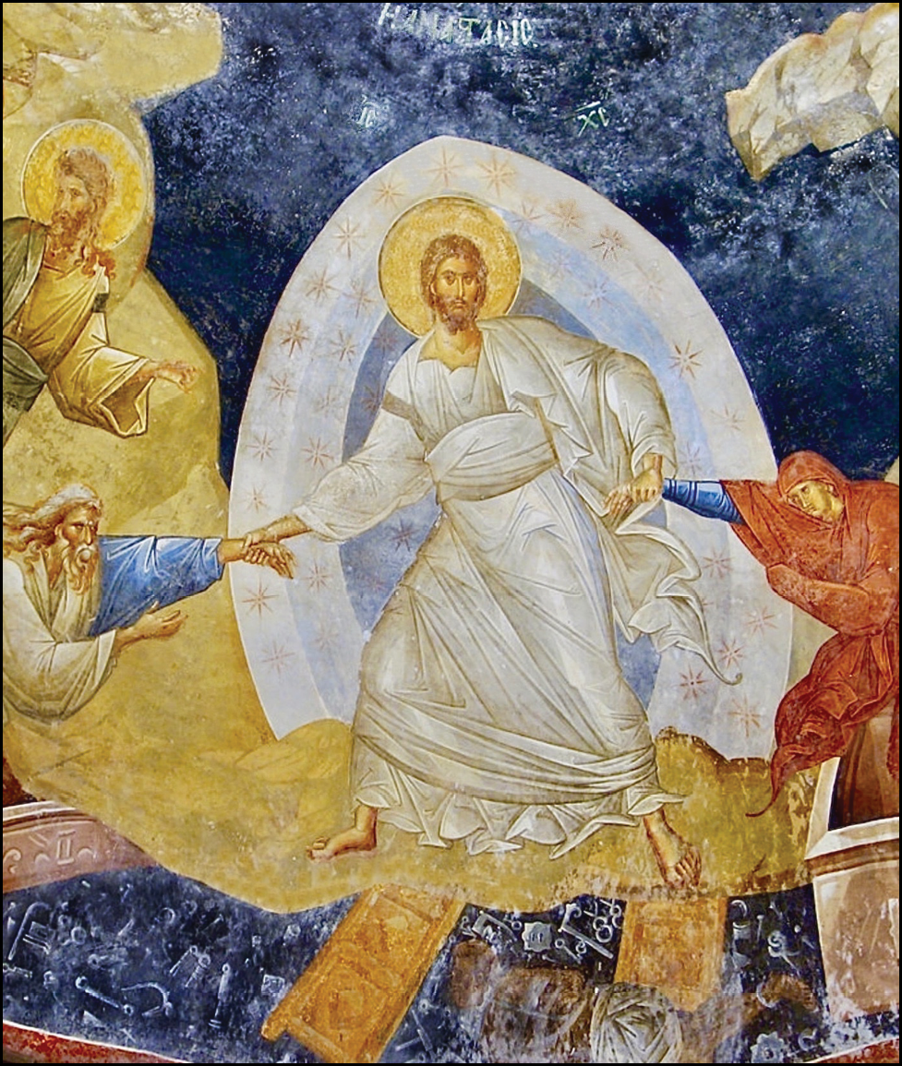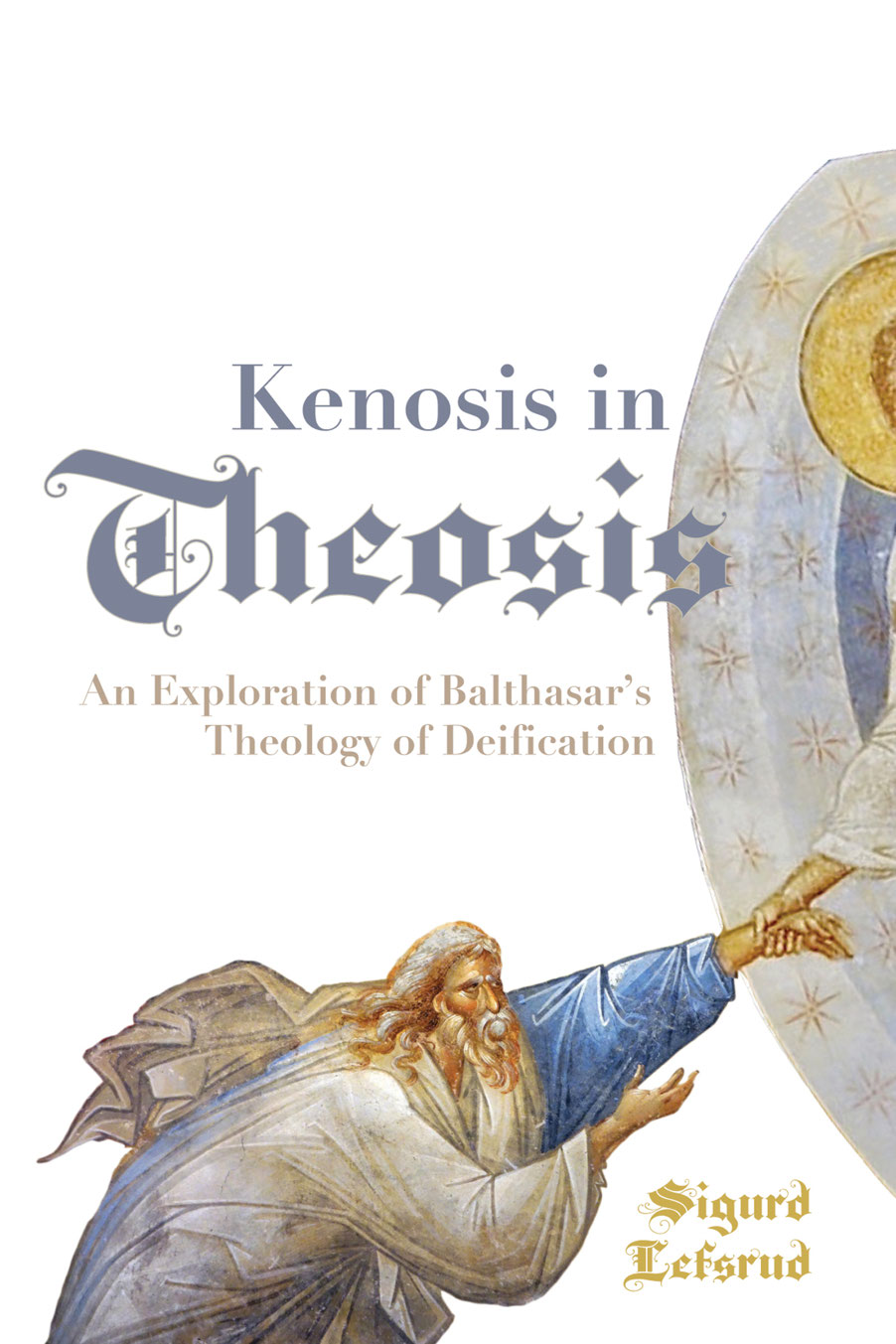
Fresco of the Anastasis, Church of the Holy Savior in Chora. 14th c.
Kenosis in Theosis
An Exploration of Balthasars Theology of Deification
Sigurd Lefsrud
Kenosis in Theosis
An Exploration of Balthasars Theology of Deification
Copyright 2020 Sigurd Lefsrud. All rights reserved. Except for brief quotations in critical publications or reviews, no part of this book may be reproduced in any manner without prior written permission from the publisher. Write: Permissions, Wipf and Stock Publishers, 199 W. 8th Ave., Suite 3, Eugene, OR 97401.
Pickwick Publications
An Imprint of Wipf and Stock Publishers
199 W. 8th Ave., Suite 3
Eugene, OR 97401
www.wipfandstock.com
paperback isbn: 978-1-5326-9368-7
hardcover isbn: 978-1-5326-9369-4
ebook isbn: 978-1-5326-9370-0
Cataloguing-in-Publication data:
Names: Lefsrud, Sigurd, author.
Title: Kenosis in theosis : an exploration of Balthasar's theology of deification / Sigurd Lefsrud.
Description: Eugene, OR: Pickwick Publications, 2020 | Includes bibliographical references.
Identifiers: isbn 978-1-5326-9368-7 (paperback) | isbn 978-1-5326-9369-4 (hardcover) | isbn 978-1-5326-9370-0 (ebook)
Subjects: LCSH: Balthasar, Hans Urs von, 19051988 | Deification (Christianity)History of doctrines | Catholic ChurchDoctrines | Theology
Classification: BX4705.B163 L44 2020 (print) | BX4705.B163 (ebook)
Manufactured in the U.S.A. April 8, 2020
Scripture taken from the New King James Version. Copyright 1982 by Thomas Nelson. Used by permission. All rights reserved.
This work is dedicated to my father, John.
May his memory be eternal.
For you know the grace of our Lord Jesus Christ,
that though He was rich,
yet for your sakes He became poor,
that you through His poverty might become rich.
2 Corinthians 8:9
Preface
Of all the great themes in the theology of the Church there is none that encapsulates the gospel message as well as deification. It took me many years as a pastor, and later as a theologian, to grasp this. Only after wading through various streams of atonement theories, theologies of social justice, and spiritual treatises did I finally come to realize that they all led to the ocean of meaning distilled in the fundamental truth that God desires us to participate in His lifeindeed to partake of His very nature (2 Pet 1:4). Thereafter I gained a deeper appreciation of the fact that being nobly created in the image of God (Gen 1:26) is only the beginning of understanding the meaning of the human person and Christian existence. For that initial gift from God implies a corresponding purpose and even more magnificent gift that is often overlooked: to attain Gods likeness through grace so that we may become fully human and fulfill our destiny as mediators between the created and uncreated. We are designed to live eternally in Gods presence, continually growing in love and thereby drawing together with us the entire cosmos into divine life. The doctrine of deification reveals, like nothing else can, that God is both our never-ending End and ever-new Beginning.
When I was first drawn to the works of Hans Urs von Balthasar it was not because of his theology of deification, which I only discovered much later. Rather, his depth of insight struck me, as well as his creative boldness in exploring important undeveloped themes like the transcendent nature of beauty and the soteriological implications of Holy Saturday. Furthermore, I had never before come across a theologian who consistently conveyed the drama of the divine-human relationship with such a sense of immediacy. This was (and still is) vitally important to me, as theology is, more than any of the sciences, the science of lifeand the fullness of eternal life at thatonly truly fulfilling its right function when it contributes to the health and growth of the human person.
The theology of deification addresses this goal by pointing to the very meaning and purpose of existence so that one is able to more fully understand what spiritual growth is about, and how through Gods grace it is accomplished. Since the grass withers, [and] the flower fades (Isa 40:8), the only thing truly worthwhile (and really real) is that which outlasts death, the seed of faith that emerges through the dark earth and is transformed into something new. The vision of Gods extravagant promise epitomized in the theology of deification sets our gaze in the right direction, and by doing so likewise provides the truest lens for perceiving our present reality.
The intent of this work is to explore the central thrust of Balthasars theology of deification: that it is only rightly understood within the context of Gods (and likewise humanitys) kenosis. My goal is therefore limited to focusing on this distinguishing characteristic of Balthasars theology rather than presenting a comprehensive study of his theology of deification. I chose to do this for two reasons: to bring succinctness to a broad theme that is often densely interwoven with practically every other theological subject in the corpus of Balthasars writings, and to therefore more effectively highlight his unique contribution. Despite the valuable insights found throughout Balthasars theology of deification it has nonetheless been overlooked in theological research. Notwithstanding Nicholas Healys treatment of the theme from an eschatological perspective in a chapter of his book, The Eschatology of Hans Urs von Balthasar, and a recent dissertation on divinization as a hermeneutical criterion in Balthasars Theo-Drama by Silvio do Socorro de Almeida Pereira, there is little written directly on his theology of deification.
One thing that I cannot fail to mention regarding our topic is that it must be approached with reverence and so a sense of reticence since deification is a holy mystery, granted by God as a gift and accomplished in a way unique to each individual. As such the theology in this area cannot be rationalized or systematized to any significant degree, but only sketched (an analogy Balthasar likes to use) like a portrait from different angles. This is an appropriate analogy for all of us are in a true sense Gods art, and presuming full comprehension of the work of any artist (let alone Gods!) is by definition hubristic overreaching. Given these considerations, my approach is of necessity more apophatic than cataphatic, with far more questions raised than answered. In a way, then, the very manner of addressing the theme of theosis involves kenosis: a willingness to abandon the drive to categorize and explain must necessarily take place for the sake of truth-telling. As St. John of Damascus rightly asserts,
But what the substance of God is, or how it is in all things, or how the only-begotten Son, who was God, emptied Himself out and became man from a virgins blood, being formed by another law that transcended nature, or how He walked dry-shod upon the waters, we neither understand nor can say.
This work could not have been accomplished without the guidance and support of many. I am particularly indebted to the members of the monastic community of the Abbey of New Clairvaux in Vina, California who graciously invited me to live with them for the greater part of two years while doing research and teaching during the final stages of my writing. My sincere thanks goes to those in Melbourne, Australia who greatly contributed to this project: Prof. Tracey Rowland and Dr. Adam Cooper, who supervised my research; Archbishop Denis Hart, who provided diocesan support; and the members of Corpus Christi Seminary and Jesuit Theological College, who welcomed me into their respective communities during my studies. Furthermore, were it not for the inspiration of spiritual companions and guides the theme of this essay would never have come to the forefront of my thought, nor would it have borne fruit. Along those lines, I am especially grateful to Abbot Paul Mark Schwan and Dr. Lee Griffin for meaningful conversations over many years about what it means to live and grow in Christ. Finally, I thank my parents who always inspired me to seek the face of God in all things.


